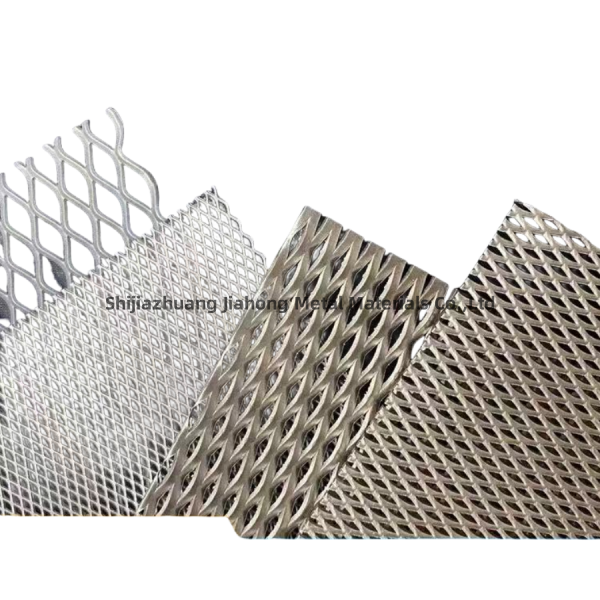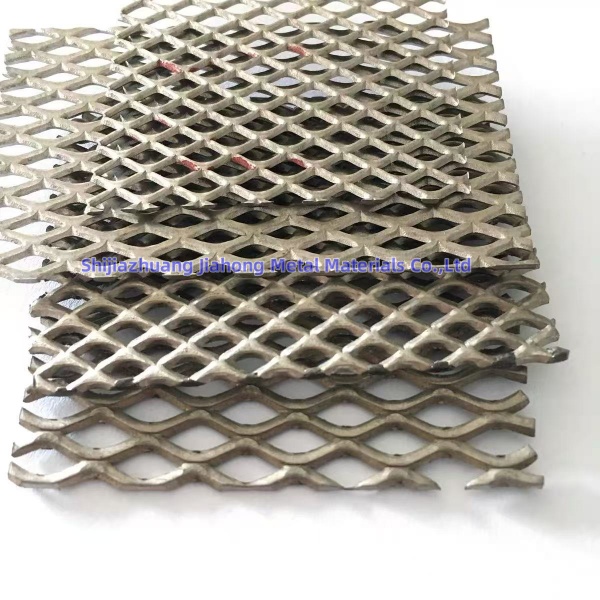Diamond Titanium Expanded Metal Mesh
Diamond Titanium Expanded Metal Mesh, also called ti mesh electrode, Titanium expanded mesh, Titanium mesh anode, Micron hole titanium mesh, which is a kind of mesh made of titanium. It has a diamond – shaped pattern, which offers good strength and stability. With excellent corrosion resistance and high temperature resistance, it’s widely used in various industries like chemical engineering and construction.
Description
1.Titanium Expanded Metal Mesh Data sheet & Specifications:
| Parameter | Description |
|---|---|
| Material | Titanium alloy (such as Ti – 6Al – 4V, etc.), Pure Titanium, Ta1 TA2. Grade 1 2 3 4 5. |
| Mesh Type | Diamond Hole Expanded type |
| Threads | 0.5mm, 0.8mm, 1.0mm, etc. (According to the actual product specifications) |
| Mesh Hole Size | Such as 2x4mm 3x5mm 3x6mm, 4x8mm, 5mm×10mm, 10mm×20mm, etc. (Length×Width) |
| Plate Thickness | Usually between 0.8mm – 3.0mm (Specific thickness depends on the product) |
| Open Area Ratio | Generally around 30% – 60% (Determined according to factors such as mesh holes and wire diameter) |
| Width | Commonly 300mm, 400mm, 500mm, 1m, 1.2m, 1.5m, etc. (Different widths can be customized) |
| Length | Usually 2m, 3m, 5m, etc. (Can also be customized according to requirements) |
| Tensile Strength | Varies according to the titanium alloy material and processing technology, generally above 400MPa – 600MPa |
| Yield Strength | For example, around 280MPa – 400MPa |
| Elongation | Approximately between 15% – 30% |
| Surface Treatment | Platinum coating, Pickling, passivation, electropolishing and other treatment methods can be selected to improve corrosion resistance and surface quality |
More info product about the diamond titanium expanded mesh, please contact us at info@jiahongmetal.com
If you wanna know about the production processs about the Ti expanded mesh, please visit:
Production Process of the Nickel/ Titanium/Copper Expanded Metal Mesh
Structure of the Titanium diamond hole expanded metal mesh:

2. Main Features of the Diamond Titanium expanded metal mesh:
(1). Strong Corrosion Resistance
Titanium has a passive oxide film, resisting corrosion from battery electrolytes. In lithium-ion or aqueous batteries, it keeps structural integrity, ensuring long service life as a current collector.
(2). High Strength per Unit Weight
It’s lightweight yet strong. In battery packs for electric vehicles, it cuts weight without sacrificing strength. The expanded mesh design optimizes the balance between strength and material use.
(3). Adequate Electrical Conductivity
Although not as conductive as copper, it’s acceptable for some battery applications. In harsh environments or systems where corrosion resistance matters more, it works well as a current collector.
(4). Good Thermal Stability
It can endure a wide temperature range. It helps evenly dissipate heat in the battery pack, avoiding hotspots and maintaining reliable performance during charge-discharge cycles.
(5). Process Compatibility
It can be easily cut, shaped, and welded, fitting existing battery manufacturing processes. This allows for efficient production and component customization.
(6). Chemical Inertness
Titanium is chemically inactive in most battery environments. It’s less likely to react with electrolytes or other components, reducing risks of unwanted reactions and maintaining battery purity.


Reviews
There are no reviews yet.